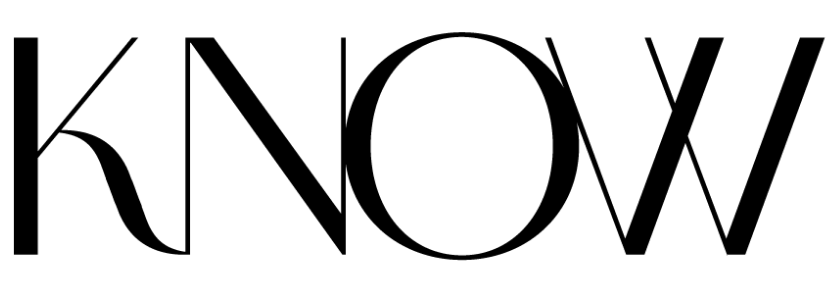
Lori Harris | Harris Whitesell Consulting LLC | KNOW Raleigh

Consciously creating and maintaining culture in organizations is simply complex. Culture is defined by the way people in the organization behave, what they believe and think, and what they say. It’s the realistic, silent code of conduct that plays out each day.
Culture sets the foundation for the scope of what the organization does: vision, values, mission, strategy, governance, goals, and objectives. Even though we understand that what behaviors a leader will tolerate defines and shapes the organizational culture, and that leaders play a crucial role in molding and nurturing the organization’s culture, it is widely understood that it takes everyone in the organization to align themselves, take responsibility and have accountability for upholding and justifying the company’s culture.
Internal factors are driven by the talent and their values, beliefs, behaviors, and perceptions. External factors play a slight role in influencing internal talent, such as customer decisions, competition, economy, technology trends, media, political and social conditions. Leaders are continually scanning these internal and external factors to maintain a competitive advantage.
The mindsets, attitudes, interests, perceptions and thought processes of each employee play into the total equation for high-performing and effective organizational culture. The company’s leadership is constantly challenged to ensure that the organization’s culture is not dysfunctional and does not pose a threat of liability. When there is dysfunction, there is liability.
Here are a few areas to help you identify if your culture is dysfunctional:
Negative Outcomes of Ineffective Culture
- Low trust, profits, and productivity
- Broken hiring and onboarding processes
- Lack of recognition and performance coaching programs
- Disengaged employees
- Attrition and high turnover
- Poor succession
- Siloed thinking
- Negative brand equity
Positive Outcomes of Effective Culture
- Vision, mission, and strategy alignment
- Enhanced trust and credibility
- Effective leadership
- High-performing and engaged employees
- Productive dialogue, discussion, and debate
- Effective decision-making
- Strong commitment, accountability, and responsibility
- Team building, collaboration and cooperation
Designing or redesigning an organization’s culture is a big and doable initiative. It is important to realize that organizations must customize their culture design, as one size does not fit all organizations. Defining and aligning shared beliefs, values and methods that will ultimately shape employee perceptions, behaviors and understandings of the organization’s vision, mission, strategy, goals, and objectives will enable the company’s leadership and employees to better align their strengths and continually develop for maximum success. Designing, blending, reconciling, and redefining the culture offers clarity and builds organizational continuity for the present and future.
Here are key insights companies can use to create, develop, enhance, and sustain effective organizational cultures:
- Administer a culture assessment. Determine the vitality of the organization—where the inconsistencies lie and what effect they are having on the organization.
- Conduct periodic employee focus groups as well as culture audits and 360-degree surveys to gain insight and feedback about the company’s culture.
- Research and understand the organization’s subcultures and how they
impact the overall company culture.
- Define the organization’s relationship to its environment, businesses, and constituencies. Is it customer-focused? Innovative? Ethical? Process-oriented? Hierarchical? Family-friendly?
- Define how the company values people-orientation or task-orientation.
- Revisit functionality of the organization and, if necessary, redesign to align key functional areas.
- Establish, model, and uphold shared beliefs and company values as company leaders and stewards of the company’s culture until company culture consensus forms.(Who are we? What makes us who we are?)
- Effectively and continuously communicate, model, and reinforce the vision, values, mission, and guiding principles.
- Clearly define, commit to and practice company ethics throughout the organization.
- Align business structure and strategy to company culture.
- Ensure hiring practicesalign and in corporate culture-fit interview questions into the hiring process.
- Clearly define roles, accountabilities, and responsibilities.
- Ensure leaders and employees understand how they align with the company vision, values, mission, guiding principles, goals, and objectives.
- Develop a strategy for strong competitive advantage and performance.
- Provide specific, ongoing, and as-needed learning, development, and training opportunities.
- Develop, implement, and sustain a reward and recognition system where employees are empowered to honor and celebrate their peers, colleagues, and team members.
- Provide executive, leadership, team, and career coaching services to all employees.
- Promote a focus on positive customer experience (internal and external).
- Promote a learning environment where employeescan recognize, share and solve individual and organizational problems and issues (a no-fear zone).
- Establish metrics, and measure for effectiveness and wellness.
The manifestation of a company’s culture is driven by many factors—from various degrees of hierarchy, level of urgency, leadership behaviors, communication styles and messages to how companies honor and celebrate milestones and employee achievement. Because of this variety and scope differentiation, how a company defines its culture and the outcomes it realizes will vary.
Ultimately what matters with culture is that companies that prioritize and nurture their culture are more likely to have employees who enjoy their time in the workplace, feel like they belong and are valued, are highly productive and seek to maximize success by creating value, growth, and opportunity—not only for themselves but for their teams and the organization’s success.

More About Lori
Talent Management Executive providing world-class service in Organizational & Culture Effectiveness| Talent Optimization| Executive, Leadership & Team Development & Coaching | People Data Expert | Author & Thought Leader
